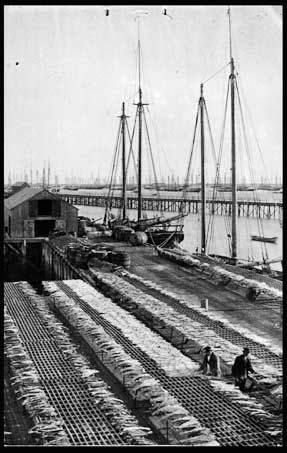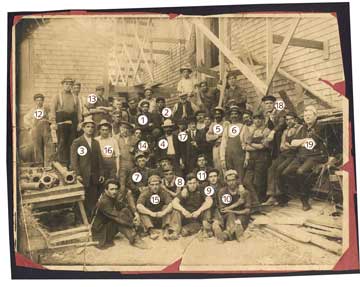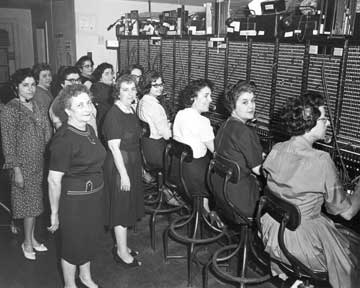 I am Provincetown.com ~ Ptown: An Extraordinary Place with Extraordinary People
I am Provincetown.com ~ Ptown: An Extraordinary Place with Extraordinary People
Provincetown Calendar of Events: What, When, Where ![]()
![]() A picture is worth a thousand words...
A picture is worth a thousand words...
|
Home | People | Provincetown Birthdays | Places | Favorites | Beaches | Events | Art | History | . . . . . . . . . . . . . . . . . . . . . . . . . . . . . . . . . . . . . . . . . . . . . . . . . . . . . . . . . . . . |
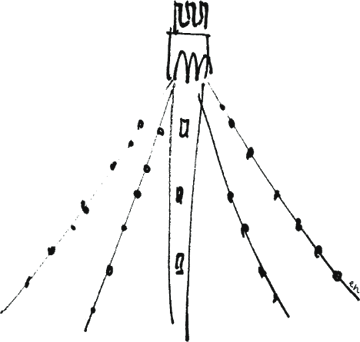 |
PROVINCETOWN HISTORY: Timeline - Dates At Glance
Prior to the arrival of the white man, Cape Cod was
inhabited by the Wampanoag Indian Federation. The Nausets, one of six sub-tribes,
lived at the end of the Cape, one of their territories being Meeshawn in
what is today Provincetown and part of Truro, although their headquarters
was in present-day Eastham.
1004 - Vikings arrived. Thorwald, an Icelandic Viking, wounded in
an Indian encounter at present-day Boston, was buried here, at "Cape
of the Crosses"
pre-1620 - John Smith visited here on his voyage of discovery of
Thatcher's Island, Straitsmouth, & Isle of Shoals; called Provincetown
Harbor "Milford Haven"
1602 - Bartholomew Gosnold arrived in the Ship Sparrowhawk, later
wrecked off present-day Orleans: gave Cape Cod its name after the abundance
of cod fish here
French fishermen visited Mohegin traders here
Probable headquarters of "notorious Indian kidnapper and slaver, Captain
Thomas Hunt"
Nov. 11, 1620 - Mayflower arrived
Nov. 21, 1620 - Mayflower Compact drafted and signed in Provincetown
Harbor
Dec. 10, 1620 - Mary, wife of Gov. Bradford, fell overboard in harbor
and drowned; her body was never recovered
Dec. 16, 1620 - Peregrine White born on Mayflower in our harbor,
first white child born in North America
Dec. 1620 - Miles Standish drilled his army of 16 men here, intending
to do battle with the Indians should they prove hostile
Dec. 20, 1620 - Mayflower left for Plymouth
by 1646 - Provincetown area only inhabited during warmer months;
strangers who wanted to fish here had to pay five shillings to the Plimoth
Colony
1654 - Thomas Prence bought all the Cape land from the Nipmucks,
a subdivision of the Wampanoags; records don't say how he disposed of his
holdings.
Province Lands recognized as a fishing reserve
ca 1680 - First permanent settlement here
April 1, 1696 - First recorded birth - Ephraim Doan
June 17, 1714 - Provincetown made a precinct under Truro; King's
Commissioners defined boundary lines
1723 - First recorded fishing trip to the Davis Straights in the
northern seas
1724 - Date of oldest written record book re: Provincetown settlement;
prior to this, Provincetown was part of Truro
Oldest tombstone recorded
1727 - Province Town was incorporated as a town and so named (although
it was almost named "Herrington")
1728 - A dozen fishing vessels and most of the town’s able-bodied
men were fishing off the northeast coast of the Cape
1730 - Law passed setting January as the date for Town Meeting
Apr. 13, 1734 - 3 pounds was paid by the Town treasury "fore
curing the School-master's Wife"
1736 - The Town spent 2 shillings for "1 1/2 pint licker"
1737 - Twelve Provincetown whalers sailed for the Davis Straits (Between
Canada and Greenland)
1748 - The formerly prosperous fishing village of Provincetown was
nearly deserted
1755 - There were only ten dwelling houses in Provincetown, in addition
to some storage buildings
When the King's officers came to the Cape to recruit men for the French
and Indian War, they were told that all the men were out whaling
1763 - Town government built the first place of worship on Meeting
House Plain (near today's Shank Painter Cumbie's); Mr. Spear was the minister
1773 - First meeting house was torn down and second one constructed
at the site of the later Catholic parsonage
Feb. 20, 1774 - The new Meeting House was dedicated
Nov. 3, 1778 - HMS Somerset, English frigate, sank off Race Point
Jan. 28, 1784 - Town Meeting voted to buy a Bible for the Town at
a price of 1£1s6d
Aug. 3, 1795 - Town voted not to allow Methodist Church to be built
in Provincetown
1798 - Pease's Tavern was build in Provincetown. In 1812, it became the Union House and is now known as the Atlantic House.
1800 - 1801 - Great Smallpox Epidemic
Feb. 22, 1802 - A memorable gale wrecked three East India ships
1805 - The Red Inn was build.
1808 - Embargo petition presented to President
Mar. 5, 1810 - Town Meeting voted not to allow geese to roam the
Town at large
1810 - The Pilgrim House, Provincetown’s oldest hotel, was established
Mar. 4, 1811 - Town Meeting voted to raise and appropriate through
taxes $300 to pay the Town’s expenses for the year, and that no part
was to pay for any minister whatsoever
Apr. 11, 1811 - Rev. Samuel Parker, the Town’s long-time government-appointed
minister, died
1811 - One man, Simeon Conant, served the Town simultaneously as
Selectman, Tax Assessor, Health Officer, Surveyor of Highways, and Overseer
of the Poor
An act was passed establishing the M.E. Church
1812 - East Harbor, today Pilgrim Lake, was a vital factor in getting
food to the Cape during the British blockade of the War of 1812
1816 - Lighthouse built on Race Point
Nov. 1818 - First permanent home built on Long Point
1822 - First child born at Long Point settlement
1825 - Provincetown had no roads and was one-horse town, with a single
old white nag owned by the parson.
1825 - Provincetown fishermen first began traveling to the Grand Banks for large
quantities of fish; Grand Bankers usually left port in April for a five-month
trip
1826 - Lighthouse built on Long Point and First wharf built in Provincetown Harbor, by Thomas Lothrop.
1827 - There were but 3 trees in town, all willows propagated from
slips brought by a whaling captain from Bonaparte’s grave at St. Helena.
1828 - Town established 6 school districts, each with its own school.
1833 - Date on a map of Provincetown Harbor showing an island, House
Point Island, directly northeast of Wood End inside the harbor; the map
also shows Lancey’s Harbor with openings to Massachusetts Bay and Provincetown
Harbor, between Wood End and Hatches Harbor, where small fishing boats took
refuge.
1834 - A school of over 600 blackfish whales beached themselves in
Truro; most of Provincetown turned out to help harvest the oil.
1835 - Commercial Street was extended through Provincetown, 22 feet
wide -- just wide enough for two teams of horses to pass one another.
ca 1835 - First wharf or pier of any kind constructed; huge tree
stumps had to be hauled out of the harbor to do so, evidence of the forests
that lined Provincetown to the water’s edge when the Mayflower arrived.
1836 - Town bought first fire engine, used for 40 years; also bought
30 second-hand leather buckets and 100 ft. hose.
1836 - The Central House Hotel (present Crown and Anchor) was built, initially
as a public hall for entertainment purposes.
1837 - There were 78 saltworks and windmills in town producing 50,000
bushels of sea salt for the salt fish trade
1838 - Sidewalk laid
1839 - Bridge built across Race Run, Hatches Harbor
1840 - Portuguese sailors and fishermen began to arrive in Provincetown
as extra hands on fishing and whaling vessels; they quickly began to displace
Yankees in the fishing industry
Oct. 2-3, 1841 - Seven vessels and 57 persons from Truro lost on
George’s Bank in the October Gale
May 11, 1843 - Provincetown whaling schooner Cordelia took the largest
whale ever known to be captured on this coast, southeast of Chatham
1845 - Equitable Insurance Company was incorporated
1847 - The Greek Revival style Universalist Church, designed by Barnstable
architect Benjamin Hallett, was constructed; before the Town Hall was built,
some town meetings were held here; known for its trompe l'oeil decorations
painted by Carl Wendte, it is the oldest standing church in Provincetown
1848 - Marine railway built on Central Wharf
1846 - Schoolhouse built on Long Point for 40 families living there
1848-49 - 'The Chatham Years', during which a great abundance of
mackerel was caught
Aug. 17, 1849 - Freeman's Bank at Union Wharf Store was robbed by
burglars of $20,000; some money was recovered, but no one was ever convicted
of the crime
Apr. 14, 1851 - Seaman’s Savings Bank incorporated
Provincetown had 688 mackerel fishermen on 60 boats
During the latter half of the nineteenth century, Provincetown was the richest
town per capita in Massachusetts, with 54 long wharves, a mackerel fleet,
Grand Bankers and Georges Bankers, and 56 whaling ships; at times, there
were 700 ships crowded into the harbor, and the town supplied them all -
Provincetown’s Golden Era
1851 - Union Marine Railway built
Oct. 3-4, 1851 - Many local vessels lost during severe gale in the
Bay St. Lawrence
Aug 1852 - First Roman Catholic Church services held in Provincetown,
by Rev. Father Phinota, in a private home on Franklin St.
1853 - Town Hall built on High Pole Hill
High School permanently established
Dec. 3, 1853 - Sudden snow squall wrecked 21 vessels
1854 - First bridge built across East Harbor
Mar. 28, 1854 - Provincetown Bank incorporated, originally as a State
Bank, later (1865) to become the First National Bank
Apr. 13, 1854 - Marine & Fire Insurance Co. incorporated
1859 - Board of Fire Engineers formed
Oil was discovered in Pennsylvania, signalling the demise of Provincetown's
Golden Era as low-cost kerosene replaced whale oil as a fuel for lamps
1860 - the Center M.E. Church (later the Chrysler Art Museum and
today the Provincetown Heritage Museum) was constructed for $22,000
1861 - Only 2 houses remained on Long Point, the others having been
floated across the harbor to Town
1861-1865 - "The Rebellion" or Civil War
Jan. 1, 1863 - English Steamship Caledonia came ashore at Race Point
1863 - The Mayflower Division of the Sons of Temperance deposited
a donation of nearly $300 for the purpose of establishing a Public Library
Provincetown was the second-largest whaling port in the United States (after
New Bedford)
1864 - The 'Boon Island Year' of a great mackerel catch
Two sand batteries, "Fort Useless" and "Fort Ridiculous,"
were constructed, equipped, and manned (but never used in a wartime situation)
on Long Point
1865 - Provincetown's population was 3,475, more than 15% of the
total population of the Cape: most were Yankees (descendants of English
settlers), 116 were Irish, 185 were Cape Bretons, and 245 were Portuguese
immigrants (nearly all from the Azores)
1866 - The Centenary M.E. Church was built near the West End; with
its octagonal steeple reaching 165 feet, the structure cost $40,000
1867 - Last house on Long Point was floated to town
1868-69 - Government Dike built at East Harbor
1869 - Provincetown Advocate began its 131-year publishing history
1870 - New Masonic Hall built (present site of Cape Tip Sports)
Bennett’s Ice Plant was established
Dec. 5, 1870 - 767 blackfish, making 1,020 barrels of oil, were taken
Oct. 1871 - During a severe gale and tidal wave, the ship Nina came
ashore and damaged the Post Office
1871 - Bradford Street was laid out at a cost of $29,000; three hills
had to be lowered and a meadow and salt creek filled to do so
1872 - Lighthouse built on Wood End
Town Meeting voted to appropriate $25 plus 3 years' dog tax monies for the
purpose of establishing a Public Library
1873 - Public Library built and donated by Nathan Freeman
Bradford Street built
June 13, 1874 - Public Library opened to the public with 2202 volumes
Jan. 4, 1873 - Fire Department established a Mutual Insurance Co.
Jan. 21, 1873 - U.S. Life Saving Stations manned
July 22, 1873 - Railroad opened for traffic
1874 - St. Peter the Apostle Catholic Church was built on the site
of the third Congregational Church by Freeman Smith of Harwich for $8,000
Benjamin Lancy, an eccentric, wealthy merchant and shipowner, built his
Commercial St. mansion which was covered with a secret material that gave
it the appearance of brownstone 1874 - Over 1400 blackfish whales came ashore
along the Bay beach of Truro, stretching from Great Hollow to Pond Landing
and producing 27,000 gallons of oil with help from Provincetown residents
Aug. 28, 1874 - President Grant visited Provincetown
1875 - Provincetown's cod fishery ranked second only to Gloucester
Mar. 1875 - St. Peter's Aid Society formed
Mar. 4, 1875 - Italian bark Giovannia came ashore off Peaked Hills
Life Saving Station
1877 - Town Hall burned down
Bridge across East Harbor discontinued, and a solid road built
January 5, 1878 - Provincetown Yacht Club organized
1880 - High and Grammar school building constructed
Nov. 30, 1880 - Crew of Life Saving Station at Peaked Hills lost during
rescue attempt
1881 - A U.S. Fish Commission Bulletin states that after town residents
were forbidden to graze their cows on the dunes due to the depletion of
grass there, they taught them to eat fish by mixing it with their fodder;
the cows would flock down to the shores when the boats came in and dine
while the fishermen cleaned their catch
1882 - After three-month trip to the Grand Banks, the Schooner Willie
A. McKay brought in the largest fare of codfish ever landed in Provincetown;
after they were dried and ready for market, they weighed 4,062 quintals
and sold for $22,000
Apr. 13, 1882 - Seaman's Aid Society established
Apr. 12, 1884 - Town lighted with street lamps
Dec. 1884 - Over two thousand blackfish were taken during this month
in Cape Cod Bay
1886 - New (present) Town Hall completed
Nickerson's Whale and Menhaden Oil Works was established in Herring Cove
near the Race Point Lighthouse
Professor George Washington Ready spotted an enormous sea serpent at Herring
Cove
1888 - Atlantic House began renting rooms (the second-oldest hotel
in town); built in 1812, the building was originally called the Union House
and served as an early courthouse
Aug. 1889 - Ex-President Grover Cleveland visited Provincetown
1893 - town's first cold storage plant constructed at the foot of
Johnson Street
November, 1897 - Provincetown schooner Susan R. Stone disappeared
six weeks after leaving port with a crew of 18 men and 1 boy, resulting
in 16 widows and 37 fatherless children
Nov. 27, 1898 - Portland Gale blew for 24 straight hours sinking
20 ships in Provincetown Harbor and damaging other ships, wharves, and homes;
500 people perished in the storm, including 127 on the steamship Portland
for whom the storm is named
1899 - Charles Hawthorne founded the Cape Cod School of Art, helping
to establish Provincetown as the nation's oldest continuous art colony
There were 518 students in the Provincetown schools
1900 - Provincetown still had a fleet of 261 ships and 34 wharves
September 12, 1900 - Provincetown Grand Banks fishing boat Cora S.
McKay was lost at sea with her entire crew of 29 men and 1 boy leaving 15
widows and 54 fatherless children; the Willie A. McKay was wrecked in the
same storm but all except one sailor were rescued
1901 - Charles L. Ayling drove the first automobile, a Stanley Steamer,
into Provincetown; the trip from Centerville took all day
Two Portuguese fishermen, "Joe Gasoline" and his dorymate, brought
the first gasoline engine to the Provincetown fishing fleet; within the
next few years, the entire fleet had power
1903 - Central House remodeled with a new mansard roof and renamed
the New Central House (today's Crown & Anchor)
1907 - Captain Manuel Perry won the Lipton Cup in the Rose Dorthea schooner; 1/2 model of her is in the New Provincetown Public Library
March 14, 1908 - The Centenary M.E. Church was struck by lightening
and destroyed by fire
1908 - President Theodore Roosevelt visited Provincetown to lay the
cornerstone for the Provincetown Monument
1909 - Admiral Donald B. MacMillan reached the North Pole with Admiral
Robert E. Peary
August 5, 1910 - completion and dedication of the Pilgrim Memorial
Monument, visible from 40 miles at sea; President William Howard Taft attended
1910 - The auto trip from Boston to the Lower Cape took five hours. The journey from New York took three days.
1910 - the second Centenary M.E. Church was constructed on the corner
of Winthrop Street
Maiden voyage of the Dorothy Bradford, owned by the Cape Cod Steamship Company,
sailing between Boston and Provincetown; in operation through the late 1930's
(round trip fare in 1931 was $2.00).
Frank Cook single-handedly caught a 270 pound halibut off Wood End, hauled
it into his dory, and rowed it five miles back to the town pier.
1911 - The West End Breakwater, built in 1911 by the US Army Corps of Engineers, is open to the public for walking and exploring. Technically speaking, it is more of a dike than a breakwater. The harbor also has a "true" breakwater built between 1970 and 1972 and located 835 feet (255 m) from the end of MacMillan Pier.
1912 - Novelist Susan Glaspell first came to Provincetown; with her
husband "Jig" Cook, she started the Provincetown Players three
years later.
1913 - Final whaling cruise by Provincetown whaling captain John
Cook on the Viola off the Pacific coast; Eugene O'Neill's play Ile is based
upon the story of Captain Cook and his wife Viola.
1914 - Provincetown Art Association and Museum founded by prominent artists Charles Hawthorne, Oscar Gieberich, William Halsall, Gerrit Beneker, E. Ambrose Webster and several local business men and women with mission to exhibit and collect works of art of merit, and to educate the public in the arts.
1915 - The Provincetown Players Theatre started in Joe and Mary (Heaton Vorse) O'Brien's fish-house a the end of their wharf. Eugene O'Neill's "Bound East for Cardiff" was originally performed here, making Provincetown the birthplace of American theater.
1915 - Joshua Paine began construction on the Provincetown Inn.
1916 - Eugene O'Neill arrived in Provincetown with his "Magic
Yeast" box.
1916 - The Boston Globe called Provincetown "The Biggest Art Colony in the World."
1917 - The Research Club erected the Pilgrim Plaque commemorating
the First Landing Place of the Pilgrims at the end of State Highway in the
West End
Provincetown became a naval base during WWI; Provincetown's draft quota
was 38; 300 enlisted; twelve died
1918 - during the flu epidemic, everyone went around town masked
with an antiseptic cloth; a hospital was improvised in the Universalist
Church; 829 residents were ill; 25 died
Eugene O'Neill, who was exempt from the draft due to TB, was arrested for
walking the dunes as he was suspected of "watching the coast defenses"
during America's nervousness in the war years.
July 21, 1918 - A German submarine attacked a tug and string of barges
off Chatham, but the men from the Chatham Naval Air Station were in Provincetown
at the time playing baseball; the flotilla of 51 sub-chasers from Provincetown's
Shore Patrol was ordered back to port before they reached the sub, causing
the sailors to endure a great deal of ribbing from the residents afterward.
1919 - Eugene O'Neill and his wife, Agnes Boulton, bought the abandoned
life Saving Station at Peaked Hill Bars and made it their home.
Peter Hunt arrived in Provincetown, beginning his long career of "Old
World" decorative painting on furniture.
July 1920 - Ku Klux Klan burned a cross in front of Provincetown's
Catholic Church signalling an animosity between Protestants and Catholics,
between Yankee New Englanders and Portuguese immigrants.
The bas relief of "Signing the Compact" was erected in the new
park at the base of Monument Hill.
Provincetown had the highest illiteracy rate in the state; when a family
lost its breadwinner (hundreds of fishermen were lost at sea over the years),
it was immediately destitute, forcing the children to drop out of schoo.
1921 - Last Provincetown-owned and -registered whaler, the Charles
W. Morgan, completed her final voyage.
Pre-Prohibition, liquor was not sold in Provincetown -- those who wanted
to drink had their supplies sent in; Prohibition created frantic liquor
consumption with considerable activity in bootlegging, and "rummin"
was popular; the Roaring Twenties quickly reached Provincetown.
1922 - Harry Kemp, "Poet of the Dunes", published his poetry
book "Tramping on Life."
December 29, 1922 - The Annie L. Spindler ("The Rum Runner")
was wrecked in a heavy gale at Race Point while transporting 800 cases of
bootlegged whiskey (to beachcombers' delight).
1923 - The Wharf Theater formed
Research Club (descendants of Mayflower Pilgrims) bought Lancy mansion as
an historical museum; in 1956, turned museum over to Cape Cod Memorial Association
(owners of Monument); museum moved to its present site in 1961, and Lancy
mansion was sold to private owners.
Dec. 1927 - Submarine S-4 sank off the Wood End Light after being
struck by the Coast Guard Cutter Paulding while looking for rumrunners.
1928 - a revenue cutter broke loose from its insufficient anchor
during a fierce gale, running amuck among the fishing fleet and wrecking
the Casino, one of the first night clubs in Provincetown.
Spring, 1928 - the Robert E. Lee was wrecked near Boston, sending
great quantities of pie filling, cosmetics, and bubblegum to wash ashore
on Provincetown beaches; frugal local beachcombers put it all to good use.
Provincetown was plagued by a long series of "Saturday night fires"
including a great week-long grass fire which closed school and threatened
to destroy the town.
1929 - Stock market crash and resulting depression was felt in Provincetown
as tons of fish from the cold storages were thrown into the sea to make
room for fresh fish for which there was no market; price of fish plummeted.
1930 - Edward Hopper started spending summers in Truro and dined at Wellfleet's Lighthouse Restaurant.
1930 - Henry Hensche became Charles Hawthorne's successor with his
Cape School of Art.
1931 - Days' Cottages opened on Beach Point in North Truro, charging ¢5 per night.
1931 - present High School constructed, replacing the old high school
and grammar school which burned down in 1930.
1931 - Race Point Coast Guard Station constructed on what is now known as Race Point Beach.
1932? - Total solar eclipse occurred in Provincetown, drawing so
many tourists that State Police barricaded the road at Wellfleet to prevent
any more visitors coming into Provincetown.
1932 - Franklin Roosevelt was elected President, and his relief plans
benefitted Provincetown, including the airport, a new post office, and mosquito
control; the arts projects made the writing, pictures, and murals of Provincetown
artists more well-known.
The Overseer of the Poor was replaced by the Welfare Department, composed
of three selectmen; welfare, unemployment payments, and surplus commodities
became a fact of life in Provincetown despite accusations of "chiselers"
and "robber barons"; surplus butter was valued, though the grapefruits
ended up at the town dump.
1933 - Through donations, the Community Center was established in
the abandoned Eastern School House despite opposition from those who fought
innovation and those who thought the concept was "Communistic."
Provincetown rejected a PWA project to install a sewage system rather than
raise the sum of $2500 for a survey and blueprint and pay 25% of the cost.
1933 - Ada "Tiny" Worthington established Cape Cod Fishnet Industries. She dyed fishnets and turned them in curtains, dresses, scarves, dolls, handbags and hats. They were sold in 21 stores and featured in major fashion magazines. The Duchess of Kent had eight of Tiny's fishnet turbans and Bette Davis had a gown made out of fishnet for her part in "Comet Over Broadway."
1935 - Hans Hoffman opens his Summer School of Art. Famed as a teacher of abstract modernism, Hoffman taught and painted here for thirty years while also maintaining his New York school in the winter. His classes grew large in the postwar years with the influx of students enrolled under the GI Bill, and artists of all styles crowded into his Friday critiques.
1936 - tourism began to compete with fishing as Provincetown's major
industry; in addition to a plethora of rooming houses, a series of "auto
camps" sprang up along Beach Point; tourists choked two-way Commercial
Street; bathers flocked to New Beach (Herring Cove). With the arrival of
tourists and the repeal of Prohibition, night clubs, taverns, restaurants,
and hot dog stands sprouted in Provincetown; the first "souvenir of
Provincetown" was a postcard depicting the back view of an enormous
woman in ankle-length bathing attire with the words "It floats!"
printed across her rear
1938 - Hurricane of '38, with resulting loss of power, caused erroneous
reports that the sea had covered Provincetown and the Cape was swamped;
corrections were finally made via England's wireless back to America
1939 - Provincetown ("of all places") considered a ban
on the wearing of shorts by women on the streets of town, causing derision
from far and wide; after a great deal of discussion which included much
talk about the Navy and venereal disease as well as "business,"
shorts prevailed
September 1, 1939 - Germany invaded Poland,
starting World War II
1940 - Tennessee Williams arrived in town, and Provincetown Playhouse-on-the-Wharf
presented its first play.
WWII drove up the price of fish as a great demand was created; Provincetown's
fleet became so important in providing food that most of the beam trawlers
which had been commandeered by the government for war use were returned
to fishing by the summer of 1941.
Wharf Theater destroyed by a hurricane.
Provincetown rehearsed evacuation of women and children by sea, should the
need arise.
September 16, 1941 - Nine hundred tuna, averaging 75 pounds apiece,
were caught in one day off Provincetown
1941 - due to the efforts of Public Health Officer Irving Rogers,
the centuries-old practice of using the beach as a dump was stopped, and
Provincetown's beaches were cleaned of tons of "old logs, sticks, tin
cans, broken toilet bowls, discarded rubber tires, ends of rope, odd shoes,
rubber boots, dead fish, bottles whole and bottles broken, rubber hose,
worn out girdles, old brooms, rusted oil drums wrecks of chairs..."
1947 - Provincetown's first Blessing of the Fleet.
Don Witherstine opened "Shore Studios," the first commercial gallery
in Provincetown.
1948 - Catholic Priest Instrumental in Establishing the Blessing of the Fleet for Fishermen in Provincetown. Father Silvia, of St. Peter's Catholic Church, was instrumental in the establishment of the "Blessing of the Fleet," along with Arthur Bargg Silva. Bishop James. E. Cassidy resided at the first "Blessing of the Fleet." (Vantine34)
1951 - Ciro Cozzi and Sal Del Deo opened a restaurant that immediately became popular with Provincetown's many artists.
1952 - West End Racing Club established
1955 - Route 6 expanded to four lines between North Truro and Provincetown.
1958 - Millionaire Walter Chrysler converted the Methodist Church
into a fine arts museum, later to become Provincetown Public Library.
1960 - Fishing Captain George Adams and his crew presented to the
town the huge anchor which they found while dragging off Chatham; it is
now located in Lopes Square.
Whale-watching as a form of entertainment and education began in Provincetown.
November 1960 - John F. Kennedy elected President.
August 7, 1961 - Cape Cod National Seashore established. In 1959 80% of Truro residents surveyed opposed the then-proposed Cape Cod National Seashore. In 1961 President John F. Kennedy signed the Cape Cod National Seashore bill. The National Seashore comprises 27,700 acres of marsh and water.
1961 - the Provincetown Museum, operated by the Cape Cod Pilgrim
Memorial Association, was built adjacent to the Pilgrim Memorial Monument.
1961 - Catherine Huntington, Edwin Petit, and Virginia Thoms opened the Provincetown
Playhouse on the Wharf.
1964 - Provincetown Art Association and Museum celebrates its 50th anniversary with a retrospective show of its major artists.
1966 - Lynne Carter first appeared at the Pilgrim House's Madeira
Club in his infamous Bette Davis impersonation; nine years later he bought
the Pilgrim House which was popular for years with both gay and straight
audiences for its drag shows.
1967 - Peter Hunt, Artist, Dies at 71 - Mr. Hunt was born in New York, and in 1919 settled in Provincetown. He was influential in the growth of Provincetown as a summer center for the arts. Working as a painter, painting "folk designs" on old furniture, he became known nationally, selling his pieces both in his two shops and in New York department stores.
1968 - Fine Arts Work Center established
1969 - The Province Lands Visitor Center was built on a sand dune approximately 100 feet above sea level.
1972 - Truro Center for the Arts at Castle Hill began giving workshops in the renovated Snow's Stables. The building had been built circa 1882 and had been used for keeping horses, storing tools, selling paint and as residential rentals. Today fully restored by Castle Hill.
1974 - Shank Painter Printing established by Edward Mick Rudd and Gillian Drake. Offset printing facility with 3 presses employed 15 people in its hight of productivity (among them Mary Oliver, Provincetown poet), printing many color catalogs for Provincetown Art Association and Museums, menus for local restaurants, business cards and rate cards for loging businesses, and posters for drag shows.
1975 - The Dolphin Fleet originated the concept of "whale watching"
in Provincetown. Dolphin Fleet ran the first whale watch tour on the East Coast.
November 1975 - by a vote of 146 to 13, Special Town Meeting authorized
the $135,000 purchase of the Chrysler Art Museum (former Center M.E. Church)
and established the Provincetown Heritage Museum
1976 - Voters at Town Meeting made pay toilets illegal in Provincetown
1977 - Provincetown Playhouse on the Wharf was burned to the ground
by vandals
Old Harbor Life Saving Station moved from Chatham to Race Point
October 1977 - Dragger "Patricia Marie" sank with a crew
of seven men
February 8, 1978 - Dragger "Captain Bill" sank with a crew
of four men
1980 - Ferry Provincetown II began to make daily trips between Boston
and Provincetown during summer months
1983 - Provincetown AIDS Support Group established, incorporated in 1985
1984 - Mary Oliver received the Pulitzer Prize for Poetry for her collection American Primitive
1985 - The Wellfleet Harbor Actors (WHAT) had its start in an old nightclub. In 2007, WHAT opened a 200-seat, year-round theater.
1989 - First Cape Air flight between Boston and Provincetown
1990 - The Pilgrim House, Provincetown's oldest hotel (built 1781)
was destroyed by arson
1991 - Hurricane Bob Hits Provincetown - It took almost a week to regain electricity after Hurricane Bob passed through Provincetown. Grand old trees were torn out by the roots. The large roof of the Surfside Inn on Commercial St. was lifted off by the winds and smashed down a block away. One town resident, Arnie Manos, died, and another broke an ankle during the height of the storm surge.
1992 Mary Oliver received the National Book Award for Poetry for her collection New and Selected Poems
1995 - Provincetown fleet made up of 35 fishing boats
1996 - Linda Silva Mysteriously Murdered On September 12, at 7:25 p.m., a long time resident of Provincetown, Linda Silva, was murdered with a single shot to the head as she entered her red Saab car in the Alden Street parking lot near Cumberland Farms. Ms. Silva was a DSS counselor in Boston, and State Police investigators checked her client list for potential suspects. A reward of $10,000 is available for information leading to the arrest and conviction of person(s) responsible for this murder.
Provincetown Banner newspaper started in competition with the Provincetown
Advocate
February 10, 1998 - 5-alarm fire destroyed Whalers Wharf and
the Crown & Anchor; 15 fire trucks, 12 ambulances, and 7 ladder trucks from
9 towns responded to the inferno which threatened to destroy the town
1998 Mary Oliver has received the Lannan Literary Award for poetry
1999 - Provincetown celebrates 100 years of art
The Linden tree, which had grown in front of the Library for 125 years,
was cut down due to disease
Provincetown Express, the "fast ferry," began two daily round
trips between Boston and Provincetown during summer months
There were 327 students in the Provincetown schools, including 43 in preschool
and kindergarten; this was 191 fewer students than one hundred years previously
(when there was no preschool or kindergarten)
2000 - Poet Stanley Kunitz appointed Poet
Laureate
Aaron Avellar, Captain of the Dolphin Fleet, dies
Summer 2000 - Gambling boat "Midnight Gambler" sailed out of Provincetown
for a short season
Advocate sold to the Provincetown Banner
2001 - Seamen's Bank robbed
MacMillan Wharf reconstruction begins
September 11, 2001 - Terrorist attact on New York and Washington,
DC
2004 - New theater opens on Bradford Street
WOMR moves to Schoolhouse Center
2005 - Molly Malone Cook dies
2005 - Provincetown Public Library moves to former Heritage Museum building
Now. 2005 - Provincetown Art Association and Museum opens its new school & exhibition building
March 3, 2006 - Norman Mailer receives France's highest honor. Pulitzer Prize-winning author Norman Mailer was awarded France's medal of the Legion of Honor at a Friday evening ceremony. H.E. Jean-David Levitte, the French ambassador to the United States, presented the medal - France's highest honor - to Mailer on behalf of President Jacques Chirac at the Cultural Services of the French Embassy. "Norman Mailer is an American hero with a fierce love of freedom and an intellectual who has taken a stand in all the great struggles of his time," Levitte said in a statement. Mailer lived in Paris after World War II and studied at the Sorbonne before publishing "The Naked and the Dead," the 1948 war story that earned him instant fame. He was previously awarded the insignia of Commander of the French Order of Arts and Letters in 1983. Mailer, 83, won the Pulitzer Prize for "The Armies of the Night" in 1969 and again in 1980 for "The Executioner's Song." Other Americans to receive the medal of the Legion of Honor include I.M. Pei and Colin Powell. Fewer than 500 people living today have received the award, which was created by Napoleon in 1802.
May 14, 2006 - Stanley Kunitz, Provincetown resident, poet dies. He enjoyed gardening and maintained one of the most impressive seaside gardens in Provincetown. He was a founder of the Fine Arts Work Center in Provincetown, where he was a mainstay of the literary community.
June 28, 2007 - Howie Schneider, author and cartoonist, dies
July 26, 2007 - Belfry is hoisted to the top of the Library
November 10, 2007 Norman Mailer, Provincetown resident, the combative, controversial novelist who loomed over American letters longer and larger than any writer of his generation, died today. He was 84.
March 2, 2008 Tony Vevers, painter, dies
March 2008 - Provincetown Banner sold to GateHouse Media New England
June 2008 - Provincetown International Film Festival, Filmmaker on the Edge award went to Quentin Tarantino.
2008 - Mark Doty awarded the National Book Award for poetry ("Fire to Fire")
Nov. 2008 - Grand Union closes, Stop & Shop moves in.
Jan. 11, 2009 - Lester Heller dies
May 2009 - Gallery Ehva opens
July 2012 - Robert Motherwell exhibit at Art Association
![]()
Pin it!
. . . . . . .
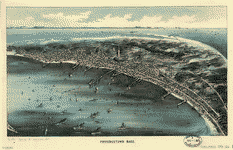 Provincetown Map, c. 1910
Provincetown Map, c. 1910
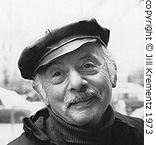
Stanley Kunitz (1905-2006)
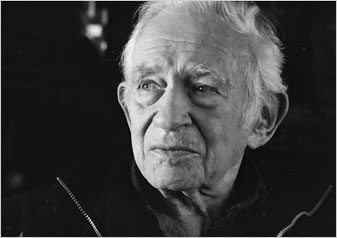
Norman Mailer (1923-2007).
Photo New York Times.
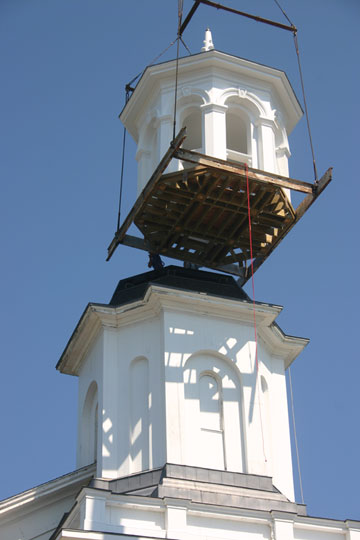
July 26, 2007 - Belfry is hoisted to the top of the Library
. . . . . . . .
For Boris
Summer — an old man
in a straw hat
waves with a metal cane.
Declaimer of Mayakovsky
at the full of the August moon
he lit the bone fire
deciphered white glyphs
on the edge of the dune.
Where is he going
lost in the moment
without even
his mother tongue.
--Nell Husted
Poet Nell Husted wrote this poem for painter Boris Margo during the early eighties when she was living at the Figurehead House and working for the Historical Association.
. . . . . . .
History...
Read fascinating story by John Whiting about making Bacalhau (Salt Cod) in Provincetown...
. . . . .
Cape Cod Cold Storage, c. 1910
. . . . . .
Who Are They? Find out here...
. . . . .
People, places...
 |
 |
 |
 |
 |
 |
 |
 |
 |
 |
 |
 |
 |
 |
 |
 |
 |
 |
 |
 |
 |
 |
 |
 |
 |
 |
 |
 |
 |
 |
 |
 |
 |
 |
 |
 |
 |
 |
 |
 |
 |
 |
 |
 |
 |
 |
 |
 |
 |
 |
 |
|
. . . . . . .

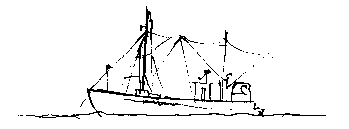
If I can say "I am Provincetown" so can YOU :)
. . . . . . . . . . . . . .
© Since 2000. All rights reserved.
